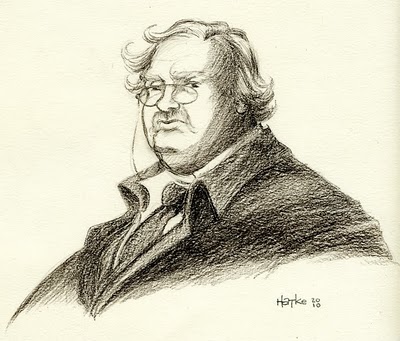I've been reading several books by Hilaire Belloc, who was one of the main proponents of Distributism. He mentions "just price" several times, but I've been unable to figure out exactly what that means to a Distributist. So... I asked one of the authors at
The Distributist Review, Richard Aleman, for some help. Here's what he said:
Dear Bob,
You are most welcome. Yes, regarding the just price I recommend reading Dr Peter Chojnowski's article on the School of Salamanca.
http://drchojnowski.blogspot.com/Eric Gill described it most succinctly as,
1. A just price (i.e. price reckoned in terms of labour costs)...[W]hat we want is just price, i.e. price fixed by maker.
The idea was to create a production outlet (or retail/manufacturer combo) that would sell flexibly with the smallest profit margin, competing via the distinctive creations of the producer (in Gill's case, artist or craftsman). This would, as much as possible, elminate middlemen and price wars as every product would be an original work based on the unique creativity of the small business owner.
This is still the case in small shops in Europe. Take bakeries for example. They measure how ingredient and labor costs, bake on premises, and sell directly to the consumer. They never undersell competitors or have a need to widen profit margins as they stand (or fall) on the quality of their unique, various products.
I can also recommend Msgr. John A. Ryan's book "The Living Wage" which you may normally find on ebay or for free on archive.org (PDF).
http://www.archive.org/details/livingwage00ryanuoftAlso, if you have not read them, I recommend two more books by Belloc: Economics for Helen and the book Usury. In this last Belloc defines productive property and lending alternatives without the use of token interest.
Keep in touch!
Pax Christi,
Richard
PS: Let me know when you are ready to study the guilds. I will email you some PDFs by Arthur Penty.




